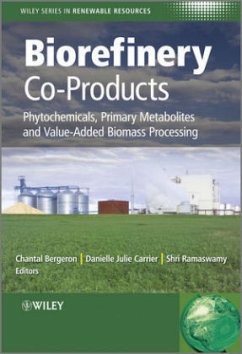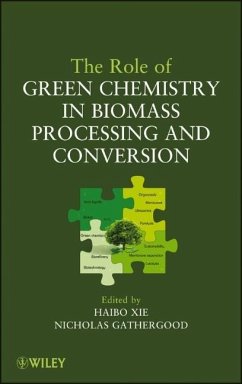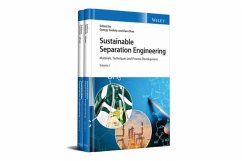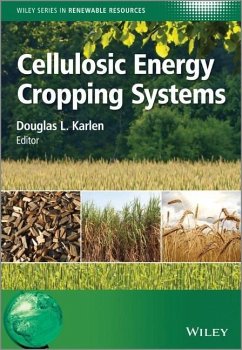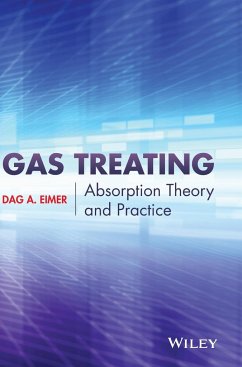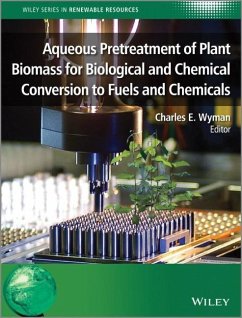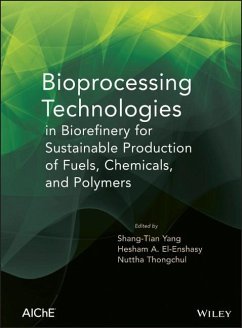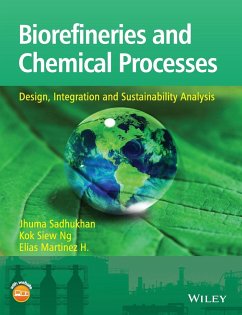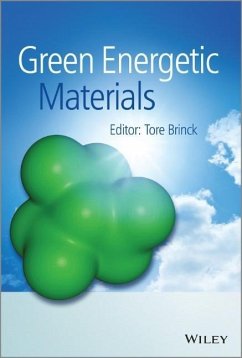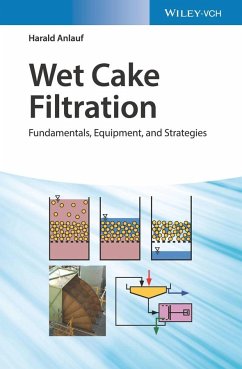Nicht lieferbar
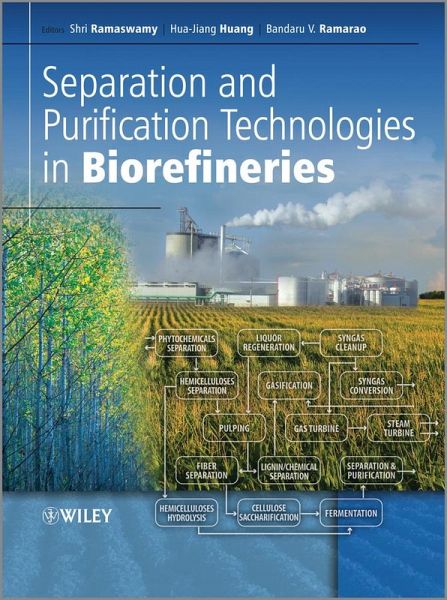
Separation and Purification Technologies in Biorefineries
Separation and purification processes play a critical role in biorefineries and their optimal selection, design and operation to maximise product yields and improve overall process efficiency. Separations and purifications are necessary for upstream processes as well as in maximising and improving product recovery in downstream processes. These processes account for a significant fraction of the total capital and operating costs and also are highly energy intensive. Consequently, a better understanding of separation and purification processes, current and possible alternative and novel advance...
Separation and purification processes play a critical role in biorefineries and their optimal selection, design and operation to maximise product yields and improve overall process efficiency. Separations and purifications are necessary for upstream processes as well as in maximising and improving product recovery in downstream processes. These processes account for a significant fraction of the total capital and operating costs and also are highly energy intensive. Consequently, a better understanding of separation and purification processes, current and possible alternative and novel advanced methods is essential for achieving the overall techno-economic feasibility and commercial success of sustainable biorefineries.
This book presents a comprehensive overview focused specifically on the present state, future challenges and opportunities for separation and purification methods and technologies in biorefineries.
Topics covered include:
Equilibrium Separations: Distillation, liquid-liquid extraction and supercritical fluid extraction.
Affinity-Based Separations: Adsorption, ion exchange, and simulated moving bed technologies.
Membrane Based Separations: Microfiltration, ultrafiltration and diafiltration, nanofiltration, membrane pervaporation, and membrane distillation.
Solid-liquid Separations: Conventional filtration and solid-liquid extraction.
Hybrid/Integrated Reaction-Separation Systems: Membrane bioreactors, extractive fermentation, reactive distillation and reactive absorption.
For each of these processes, the fundamental principles and design aspects are presented, followed by a detailed discussion and specific examples of applications in biorefineries. Each chapter also considers the market needs, industrial challenges, future opportunities, and economic importance of the separation and purification methods. The book concludes with a series of detailed case studies including cellulosic bioethanol production, extraction of algae oil from microalgae, and production of biopolymers.
Separation and Purification Technologies in Biorefineries is an essential resource for scientists and engineers, as well as researchers and academics working in the broader conventional and emerging bio-based products industry, including biomaterials, biochemicals, biofuels and bioenergy.
This book presents a comprehensive overview focused specifically on the present state, future challenges and opportunities for separation and purification methods and technologies in biorefineries.
Topics covered include:
Equilibrium Separations: Distillation, liquid-liquid extraction and supercritical fluid extraction.
Affinity-Based Separations: Adsorption, ion exchange, and simulated moving bed technologies.
Membrane Based Separations: Microfiltration, ultrafiltration and diafiltration, nanofiltration, membrane pervaporation, and membrane distillation.
Solid-liquid Separations: Conventional filtration and solid-liquid extraction.
Hybrid/Integrated Reaction-Separation Systems: Membrane bioreactors, extractive fermentation, reactive distillation and reactive absorption.
For each of these processes, the fundamental principles and design aspects are presented, followed by a detailed discussion and specific examples of applications in biorefineries. Each chapter also considers the market needs, industrial challenges, future opportunities, and economic importance of the separation and purification methods. The book concludes with a series of detailed case studies including cellulosic bioethanol production, extraction of algae oil from microalgae, and production of biopolymers.
Separation and Purification Technologies in Biorefineries is an essential resource for scientists and engineers, as well as researchers and academics working in the broader conventional and emerging bio-based products industry, including biomaterials, biochemicals, biofuels and bioenergy.





